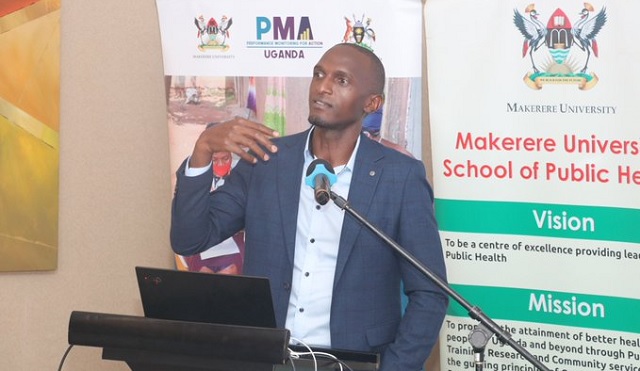
Kampala, Uganda | THE INDEPENDENT | Results of an annual survey in which researchers at Makerere University measure key family planning indicators show that while modern contraceptive use has been increasing over time, it has now hit a plateau, raising concern especially that women are reporting having unintended pregnancies.
In the survey which was conducted jointly by the Ministry of Health, Uganda Bureau of Statistics (UBOS), and the School of Public Health where they interviewed women aged 15 to 49 years between September and October 2022, half of the women reported that their last pregnancy was unintended, of whom 27% did not want any more children.
Dr Simon Kibira, one of the researchers on the survey, says that since 2020 there has been no change overall in use among both unmarried and married women as they only found an average annual increase of 1.3% which doesn’t make statistical significance.
While women have been rallied over the years and family planning forms one of the areas recommended for discussion during both antenatal care and at delivery, researchers say the number of women enrolling on contraceptives after delivery remains low.
Commenting about the findings at a results dissemination meeting on Friday, Dr Charles Olaro, the Director Curative Services in the Ministry of Health said even as the figures of women using contraceptives are still low, a lot of progress has been recorded although they still face the challenge of misinformation.
He said more counseling is needed especially among first-timers, and targeting women to enroll on family planning should start at the health facility since statistics are showing 80% of the 1.5million babies delivered in Uganda each year happen at a health facility.
However, researchers assessed this and found that only 46% of the women who were pregnant during the time of the first phase of the study in 2020 enrolled on family planning in phase two of the study in 2021. In the following phase, only 47% of those that were pregnant were using a method of family planning in 2022. Four percent of those that didn’t enroll on family planning immediately got a repeat pregnancy a year after.
Experts partly attribute this low uptake on the gaps in family planning counselling. According to Dr Betty Kyaddondo who heads the National Population Council, giving guidance to women on what methods are available immediately after a delivery or an abortion is very important but this continues to be marred by misconceptions, though healthcare managers have not paid much attention to it.
She says most women are making family planning choices through what their peers tell them rather than through health workers.
Currently however, the survey shows injection contraceptives are still the most preferred followed by implants and the least preferred remain IUDs that are inserted in women’s uteruses.
However, apart from demand for family planning being low, results of the study also point to constant stock outs.
Prof Fredrick Makumbi, the Principal Investigator says they visited 256 public and 115 private health facilities to assess availability of supplies. 57% of the stocked out facilities didn’t even know when they would receive supplies from either the National Medical Stores or the Joint Medical Stores.
But when this was put to Dr Richard Mugahi, Assistant Commissioner in charge of Reproductive and Infant Health, he blamed it on the small budget allocated for these commodities.
He explains that twenty-two billion shillings is allocated to reproductive health commodities but only 5.5billion shillings goes towards contraceptives as the biggest chunk of the money is used to purchase mama kits.
“Nearly half of the most recent pregnancies within 5 years were unintended”#PMADissemination2023 pic.twitter.com/d6djilF9EJ
— Makerere School of Public Health (@MakSPH) February 24, 2023
******
URN
 The Independent Uganda: You get the Truth we Pay the Price
The Independent Uganda: You get the Truth we Pay the Price



